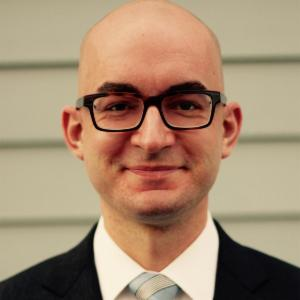
After a clerkship with former Supreme Court Justice Antonin Scalia and being appointed the Chief Deputy Solicitor General for the state of Wisconsin, alumnus Ryan Walsh ’09 made the 2017 Forbes’ “30 Under 30” list in the Law and Policy category.
According to Forbes Magazine, its 2017 “30 Under 30” List selected only 600 individuals from a pool of approximately 15,000 nominations, rendering its 4 percent acceptance rate more competitive than the nation’s most selective colleges, Harvard University and Stanford University.
Walsh named his clerkship with Scalia as one of the most distinguished aspects of his career, though he said being chosen for the position was part luck, since no one can really claim an entitlement or qualification for that sort of position. As a law clerk, Walsh worked with Scalia on a weekly, if not daily, basis, reviewing petitions, discussing cases, and drafting petitions.
He said one of the highlights of the experience was discussions with Scalia and his fellow clerks before Scalia had decided how he would vote. Though he said he entered the clerkship worried that a peek behind the curtain might leave him disillusioned about the way the court worked, Scalia proved to be a man of the highest character. He welcomed his clerks to engage him in discussion if they felt his decision would be contrary to what the law required.
“To participate in those conversations and go back and forth with him — he really wanted to fight over the issues, so he wanted you to take him on if you thought you should take him on,” Walsh said. “He really welcomed that. To see him do that and then say, ‘Okay, well, I better vote to affirm or reverse,’ or wherever the conversation led, that was really something.”
After the conclusion of his clerkship, Walsh worked as an associate attorney at Jones Day for two years before being named Chief Deputy Solicitor General for the Attorney General in his home state of Wisconsin last spring. Now, his work entails researching and writing briefs, as well as preparing and participating in oral arguments for the Wisconsin Supreme Court and the U.S. Court of Appeals for the Seventh Circuit. Recently, he defended a number of Wisconsin election laws when they were challenged as unconstitutional, and is also in charge of federal and state appellate litigation involving Wisconsin’s Right to Work law, which prevents labor unions from demanding fees from non-unionized employees.
He said Hillsdale’s coursework and professors helped him develop an ability to think analytically, a skill he cited as critical in the legal field.
“The whole system of the adversarial practice of law is built on that idea that each side should make the best available arguments so the court can evaluate the best available legal arguments and have the best information in front of them to make a decision,” he said.
While at Hillsdale, Walsh served as 2009 class president, and later served as the editor-in-chief for the University of Chicago Law Review as a student there.
“Ryan was an exceptional student here at Hillsdale. He exemplifies the good character and sound principles the College stands for,” said Nathan Schlueter, professor of philosophy and director of the pre-law program in a press release. “A real classical liberal-arts education, rooted in a study of the great books, is an excellent preparation for the legal profession. Ryan’s success shows that.”
Outside of his legal career, Walsh said he mostly spends time with his wife and four children. He said committment to family and community should always come before commitment to career, a prioritization he said he learned from Scalia, one of his foremost role models.
“Never neglect your other life commitments,” Walsh said. “Don’t become the sort of person who’s completely absorbed in their work and isn’t a good member of their community or their family. Our society, and our profession, needs people who are real people living humane lives dedicated to others. That’s important especially for people going into law, since law tends to be a pretty demanding profession, and it can be pretty easy to get absorbed in it.”

